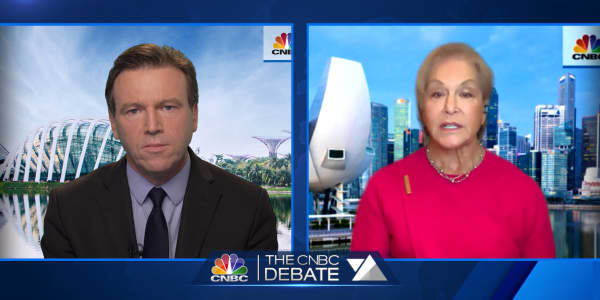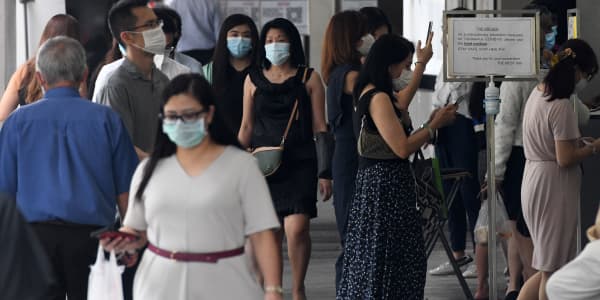
Swiss engineering giant ABB is bullish on China despite the ongoing trade war between Beijing and Washington.
The tech company has not changed the way it's investing in China, said its chairman Peter Voser, who is also the chief executive officer at Zurich-headquartered ABB.
"We see (the trade tensions) as a short-term issue because the Chinese market is big enough and has an enormous growth potential on the manufacturing side," Voser told CNBC's Nancy Hungerford at the Singapore Summit. "I mean, they are a global manufacturing hub, but they also have their own big market, which they can serve."
The U.S. and China are locked in a trade war, and both sides have applied tariffs on billions of dollars worth of each other's goods. Their retaliatory tariff actions have roiled global markets, dented investor sentiments and trimmed global growth outlook.
ABB, which operates in areas including automation technology, is currently building a $150 million robotics manufacturing and research facility near Shanghai that is expected to be operational in 2021.
The facility will be the "most advanced, automated and flexible factory in the robotics industry worldwide," the company claimed in a news release. It will also have an onsite research and development center to delve into artificial intelligence.
Voser said ABB sees a "huge upside" in China for its automation and robotics business. He explained the country's aging population would soon mean there would be insufficient trained staff in many companies, which would increase the need for automation.
Automation and robotics is part of the country's Made in China 2025 industrial policy, which was designed to reduce its dependence on imported technology in certain priority industries, Voser added.
"China is not very highly roboticized today compared to Germany, compared to Singapore," he said. The country has "a huge way to go, hence, we see the whole situation positive in the longer term."
The United States has long accused the world's second-largest economy of intellectual property theft and forced technology transfers from American companies operating within its borders. Beijing has in turn accused the U.S. of trying to protect American firms from competition and blocking China's technological development.
But, U.S. Deputy Assistant Attorney General Adam Hickey told CNBC on Saturday that some of the intellectual property theft and forced tech transfers are allegedly linked to the "Made in China 2025" plan.
For his part, Voser said ABB — which has operated in China for 60-70 years — sees the positive trends in the country around intellectual property.
"They are tightening the rules, they're getting closer to western standards," he said, adding that ABB has a dedicated department that watches developments in these areas closely.





